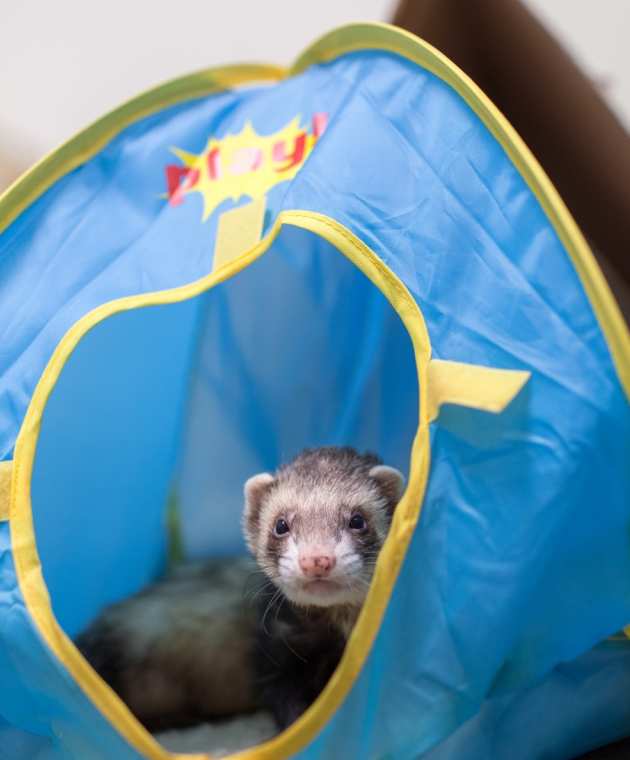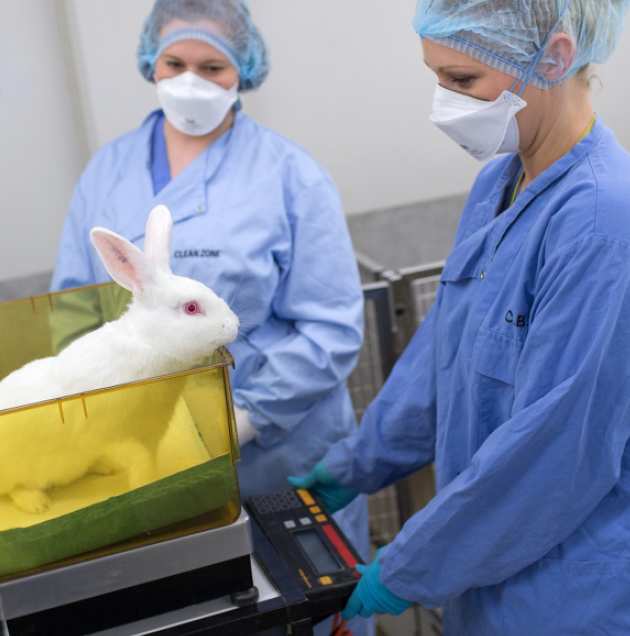 Imperial is committed to ensuring that all animals in the College’s care are treated with respect, and that all staff involved with this work show due consideration at every level.
Imperial is committed to ensuring that all animals in the College’s care are treated with respect, and that all staff involved with this work show due consideration at every level.
Technicians work closely with scientists and are encouraged to continuously develop and improve on existing welfare standards. Researcher regularly give presentations about their data to technicians to engage them with their work and give them the opportunity to provide input.
Day-to-day care is provided by dedicated animal technicians who work in specially designed animal facilities. Technicians ensure that laboratory animals are supplied with food and water; clean, comfortable cages; and enrichment materials, such as cardboard tubes and boxes.
Among the technicians are Named Animal Care and Welfare Officers (NACWOs) who are independent from scientific research and authorised by the Home Office to monitor the care and welfare of animals in accordance with the law.

Before researchers can get a licence to work with animals, they must receive appropriate training on ethical and welfare issues, techniques and skills, and legal responsibilities.
Training is provided by designated trainers and assessed by the Named Training and Competency Officer (NTCO).
The College provides a programme of continuing professional development for technical and research staff to maintain and improve their skills and knowledge of working with animals.
Everybody that works with animals undergos to assessment of their competence every three years to make sure they are up-to-date with the latest techniques.
The College’s Central Biomedical Services (CBS) division is the first animal care facility within a UK university to receive the prestigious recognition from AAALAC International. Imperial College's animal care programme have recived the official AAALAC accreditation in November 2018.